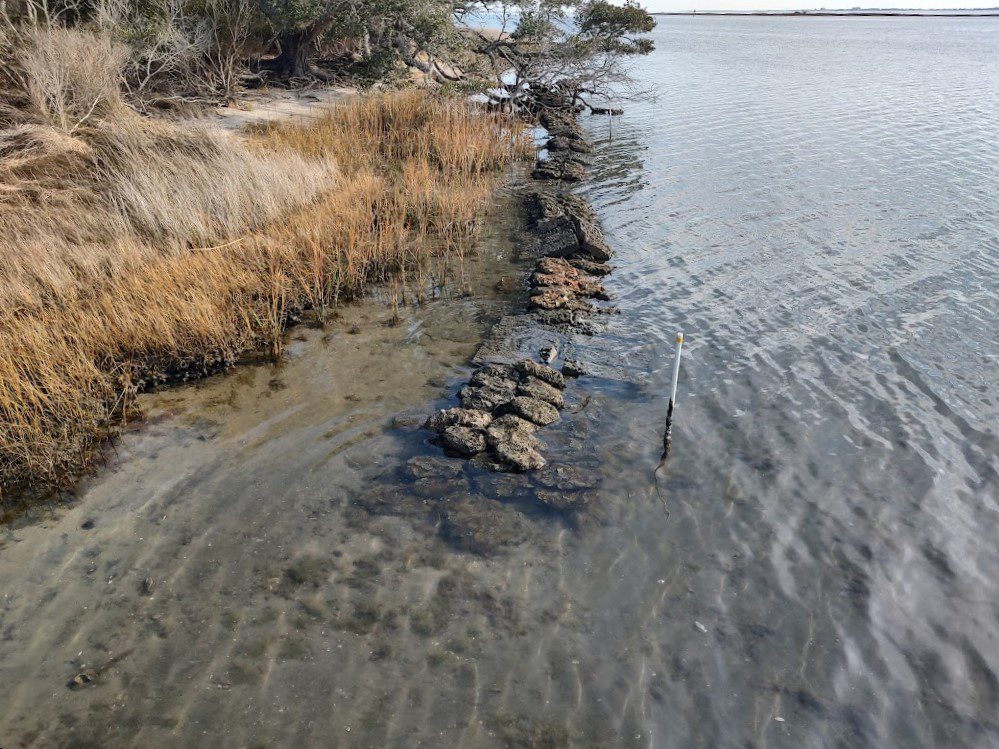
CHAPEL HILL — Environmental organizations are seeking to intervene in a federal lawsuit brought by a North Carolina commercial seafood business operator that they contend seeks to virtually eliminate remaining federal wetlands protections that were dramatically scaled back last year.
The Southern Environmental Law Center said Wednesday it had filed in the U.S. District Court for the Eastern District of North Carolina a motion to intervene and memorandum in the case, which it says could strip provisions that protect waterways that support fishing, hunting and outdoor recreation and undermine their related economies. The law center is representing the National Wildlife Federation and the North Carolina Wildlife Federation.
Supporter Spotlight
The case was brought in March by Robert White of Pasquotank County. White is challenging what he contends are illegal provisions in Environmental Protection Agency and Army Corps of Engineers rulings “to restore his own right to make use of his own land,” according to his attorneys, and to ensure both agencies comply with — and courts apply — the 2023 U.S. Supreme Court ruling that dramatically narrowed Clean Water Act protections.
Pacific Legal Foundation, which specializes in property rights cases, is representing White, who plans to operate a sand mine on river-adjacent land he owns. Pacific Legal said the Supreme Court’s decision requires that wetlands must be indistinguishable from navigable waters to be regulated. “Land such as Robert’s, which does not bear this connection to the two waterways — cannot be subject to federal regulation under the Clean Water Act.”
The nonprofit law firm known for property rights advocacy contends that the high court’s 5-4 majority opinion in Sackett v. EPA held that the Clean Water Act extends to only wetlands with a continuous surface connection to bodies that are “waters of the United States.” Pacific Legal lawyers had successfully represented Chantell and Mike Sackett in their dispute with the EPA.
“Last term in Sackett the Supreme Court made clear that the Clean Water Act forbids the type of wetlands regulation at issue in Mr. White’s case,” Pacific Legal Foundation attorney Charles Yates said in a statement in response to Coastal Review’s query. “That the Clean Water Act only authorizes the regulation of wetlands that are ‘indistinguishable’ from covered waters, is beyond dispute. Yet rather than adhering to Sackett’s rule, the Agencies have doubled down and are transparently seeking to evade the judgment of the highest court in the land. All Mr. White seeks is a declaration that, per Sackett, the Agencies may no longer regulate his property. The interveners in this case are unsatisfied with the statute Congress actually passed and the Supreme Court’s ruling insisting that it means what it says; the proper audience for their complaints is the legislative branch.”
Pacific Legal said that White owns “low-lying,” flood-prone land on Big Flatty Creek and the Pasquotank River. Seeking to make improvements to minimize flooding and for business endeavors including agriculture and sand mining, White became engaged in permitting disputes with the EPA and the Corps regarding the “navigable waters” provision in the Clean Water Act.
Supporter Spotlight
He faces “crushing civil enforcement action,” according to Pacific Legal.
The Southern Environmental Law Center said the relief the plaintiff seeks would effectively write most wetlands out of the Clean Water Act.
“A ruling adopting this extreme view could have devastating effects on waters in North Carolina and throughout the nation,” said Mark Sabath, senior attorney at the Southern Environmental Law Center. “Wetlands are vital to help protect drinking water supplies, wildlife and fisheries, and our communities from flooding. If the wetlands along our coastal waters like the Albemarle Sound are developed and destroyed, communities will be wrecked by job loss, wildlife loss, and flooding.”
The National Wildlife Federation and the North Carolina Wildlife Federation say that the ruling stands to have large economic repercussions. They say healthy fish and wildlife depend on clean water, and that valuable waterways threatened by the lawsuit support fishing, hunting, and outdoor recreation, as well as the jobs these activities sustain. They contend that the clean water that hunters, anglers and other outdoor enthusiasts expect is a pillar in a $788 billion outdoor recreation industry.
“We care about the water quality and wetlands of North Carolina for both people and wildlife,” said Tim Gestwicki, CEO of the North Carolina Wildlife Federation. “We cannot protect fisheries if the wetlands and streams flowing into estuaries are polluted or destroyed. We cannot ensure that critical wildlife habitat is preserved for fishing, hunting, birdwatching, and outdoor recreation if wetland protections are weakened.”
The groups say nearly all of the commercial catch and over half of the recreational harvest in the Southeast are fish and shellfish that depend on wetlands, and wetlands provide important flood protection for communities.
“What the plaintiff in this case is seeking could make it more difficult to protect wetlands and other waters that are critical to fish, waterfowl, shellfish, and other wildlife, and allow widespread destruction and degradation of those critically important waters along with pollution and flooding downstream,” said Jim Murphy, senior director of legal advocacy for the National Wildlife Federation. “Strong Clean Water Act protections safeguard critical wetlands and other waters that sustain our nation’s wildlife and people.”
White is currently facing a separate federal enforcement action for building and filling a bulkhead on wetlands without a permit on his property on the Pasquotank River and Big Flatty Creek. His attorney did not respond to questions pertaining to that case.







